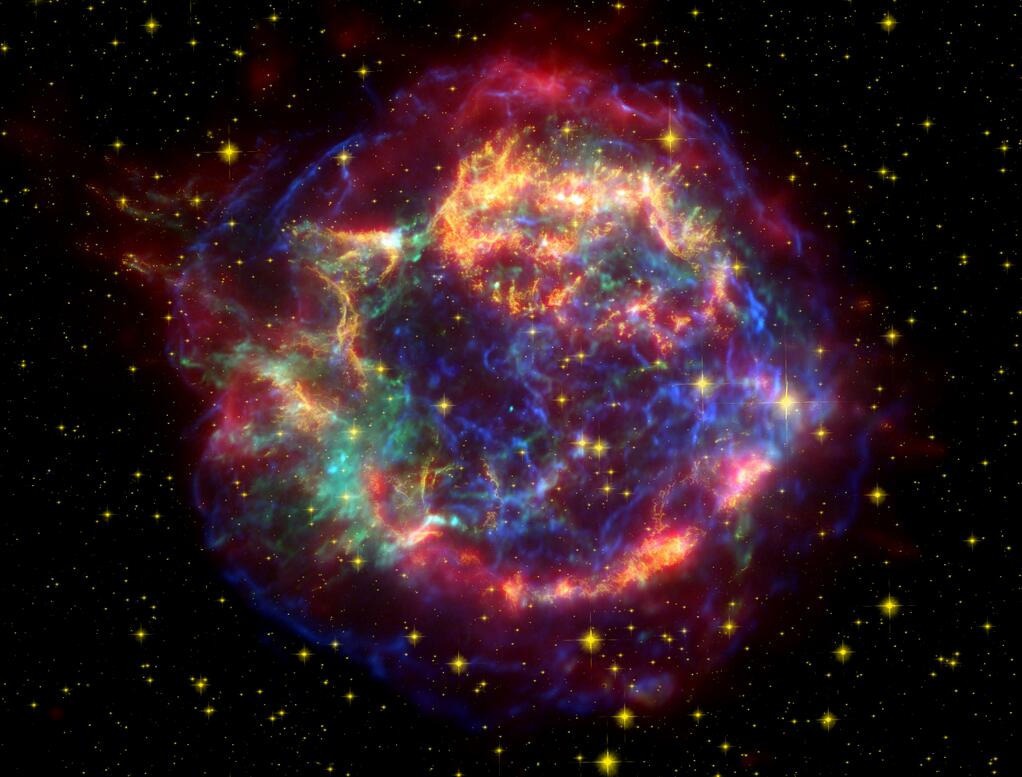The point at which the Lord first spoke to me in a bold and unmistakably recognizable way was at a time when I was praising him and celebrating the beauty of his creation. I was singing praise songs along with the radio station in the car and watching the dawn of a spring morning in March 1997 as I drove along the lovely gentle landscape of south Alabama. I was so taken by the beauty around me and my awareness of the presence of God that I spoke these words, “Surely, God, you have created the beauty of this world for your glory and my delight!” He spoke in my spirit in that split second and said, “Tell others.”
God is beyond all that we know or think. He is carrying out creative things that we cannot even conceive. Many would have us believe that all of the cosmos is a haphazard, random conglomeration that just burst into being and evolved into what we now observe. But those of us who know God know that nothing is random or haphazard.
I have heard philosophers, doctors of theology, and scientists speculate on theories of consciousness that were so beyond my education, intellect, and imagination. But reading these recent reports make me think that science just might be moving in the right direction!
The Conscious Universe January 3, 2017
“The great American physicist John Archibald Wheeler introduced the concept of wormholes and coined the term “black hole”. He pioneered the theory of nuclear fission with Niels Bohr and introduced the S-matrix (the scattering matrix used in quantum mechanics). Wheeler devised a concept of quantum foam; a theory of “virtual particles” popping in and out of existence in space (similarly, he conceptualized foam as the foundation of the fabric of the universe).
Wheeler inspired many aspiring young scientists, including some of the greats of the 20th century. Among his doctoral students were Richard Feynman, a Nobel Prize laureate, with whom he coauthored the “Wheeler-Feynman absorber theory”; Hugh Everett, who proposed the many worlds interpretation; Kip Thorne, who predicted the existence of red supergiant stars with neutron-star cores; Jacob Bekenstein, who formulated black hole thermodynamics; Charles Misner, who discovered a mathematical spacetime called Misner space; Arthur Wightman, the originator of Wightman axioms; and Benjamin Schumacher, who invented the term “qubit” and is known for the “Schumacher compression”.
Wheeler suggested that reality is created by observers and that: “no phenomenon is a real phenomenon until it is an observed phenomenon.” He coined the term “Participatory Anthropic Principle” (PAP) from the Greek “anthropos”, or human. He went further to suggest that “we are participants in bringing into being not only the near and here, but the far away and long ago.”
http://www.dailygalaxy.com/my_weblog/2017/01/the-conscious-universe-a-radical-theory-the-universe-exists-because-we-are-here-view-video.html
Is The Universe Conscious? Jun.16.2017 / 11:32 AM ET
“Some of the world’s most renowned scientists are questioning whether the cosmos has an inner life similar to our own.
For centuries, modern science has been shrinking the gap between humans and the rest of the universe, from Isaac Newton showing that one set of laws applies equally to falling apples and orbiting moons to Carl Sagan intoning that “we are made of star stuff” — that the atoms of our bodies were literally forged in the nuclear furnaces of other stars.
Even in that context, Gregory Matloff’s ideas are shocking. The veteran physicist at New York City College of Technology recently published a paper arguing that humans may be like the rest of the universe in substance and in spirit. A “proto-consciousness field” could extend through all of space, he argues. Stars may be thinking entities that deliberately control their paths. Put more bluntly, the entire cosmos may be self-aware.……….
Ever since the 1920s, physicists have puzzled over the strangely privileged role of the observer in quantum theory. A particle exists in a fuzzy state of uncertainty…but only until it is observed. As soon as someone looks at it and takes its measurements, the particle seems to collapse into a definite location.
The late physicist John Wheeler concluded that the apparent oddity of quantum mechanics was built on an even grander and odder truth: that the universe as a whole festers in a state of uncertainty and snaps into clear, actual being when observed by a conscious being — that is, us.
“We are participators in bringing into being not only the near and here but the far away and long ago,” Wheeler said in 2006. He calls his interpretation the “participatory anthropic principle.” If he is correct, the universe is conscious, but in almost the opposite of the way that Matloff pictures it: Only through the acts of conscious minds does it truly exist at all……..
Even if it cannot be proven, the participatory anthropic principle extends the unifying agenda of modern science, powerfully evoking the sense of connectedness that Albert Einstein called the cosmic religious feeling.
“In my view, it is the most important function of art and science to awaken this feeling and keep it alive in those who are receptive to it,” Einstein wrote in a 1930 New York Times editorial. Explorers like Matloff are routinely dismissed as fringe thinkers, but it is hard to think of any greater expression of that feeling than continuing the quest to find out if our human minds are just tiny components of a much greater cosmic brain.
https://www.nbcnews.com/mach/science/universe-conscious-ncna772956
![MPj04389070000[1]_phixr](http://disciplerofself.com/wp-content/uploads/2015/03/MPj043890700001_phixr.png)
